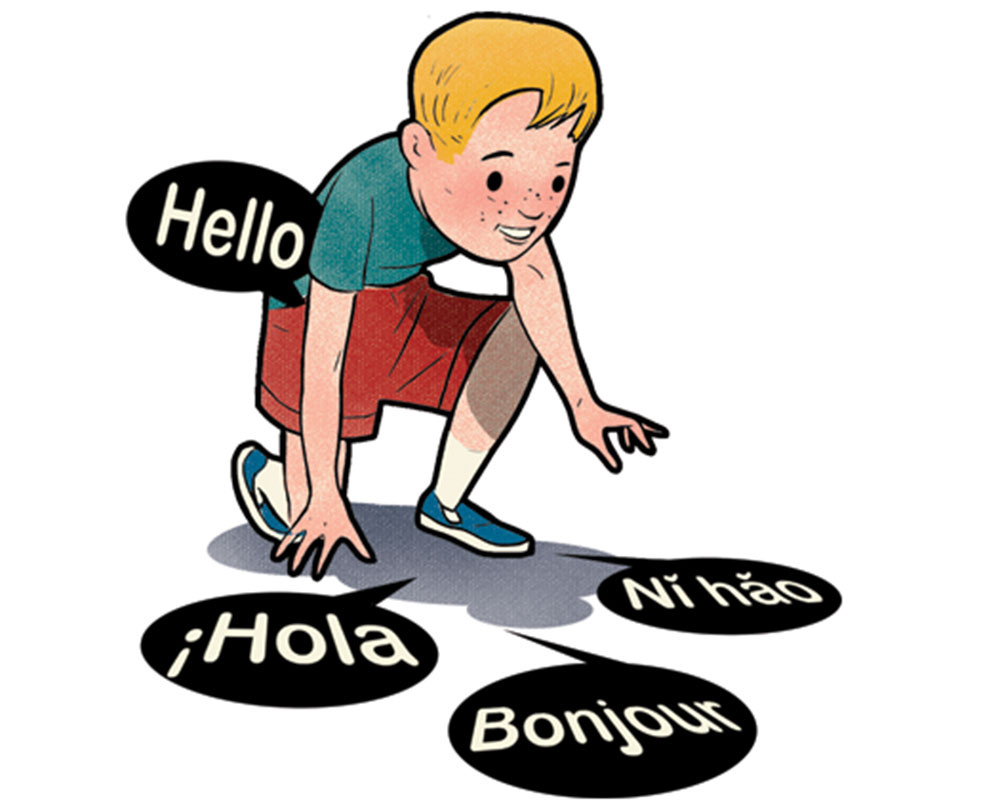

In 1967, neuroscientist Eric Lenneberg laid out his argument for a “critical period” in language acquisition: Beyond a certain age, he said, and without the normal stimulation, a person could never really develop a natural way of speaking. Then he added, almost as a throwaway: The same applies to second languages. If you don’t start learning them during your youth, he suggested, you’ll be doomed to second-rate pronunciation.
Studies found that Lenneberg was on to something with the latter point. When scientists compared the English skills of immigrants who arrived in the U.S. at different ages, the ones who showed up earlier in their lives seemed to have a clear advantage, even if they’d spent the same amount of time immersed in English overall. That’s not to say that child learners end up with perfect second-language skills: Some who picked up English very young still grew up with certain linguistic quirks. But as a rule they were much better at pronunciation than their older peers.
Why is that the case? Some have argued that a child’s brain has special qualities that make it more adaptable or nimble. We can’t rule this theory out, says James Flege, professor emeritus at the University of Alabama at Birmingham, but several other conjectures might explain the data just as well. Flege believes children have an easier time with second languages because their minds are not as cluttered with a first one. The more trained we are to native vowel sounds, the more automatic those sounds become, and the harder it is to produce strange new ones. It’s like trying to learn tennis when you’ve spent your life playing badminton, he explains. The movements are different, but they’re close enough that you might be tempted to substitute one for the other. “It’s so simple that very few people understand it,” Flege says. “The biggest difference between a young child acquiring a first language and an older child acquiring a second language is that the first child doesn’t have another language to compete with.”
It’s also possible that children simply have more and better sources of input when they’re learning languages. When older immigrants arrive, they may socialize with fellow speakers of their native tongue. They may also be distracted by the necessity of working for a living. But young immigrants typically go to schools where they’re forced to interact with English-speaking children, and they can focus on their studies. They’re also given more leeway on their efforts to express themselves. While an adult with meager English skills might provoke annoyance or derision, “no one expects a child to be perfect,” says Flege. “The learning situation provokes less anxiety. Kids get a lot of credit just for trying.”
This article originally appeared in the September 2014 issue of Popular Science.
